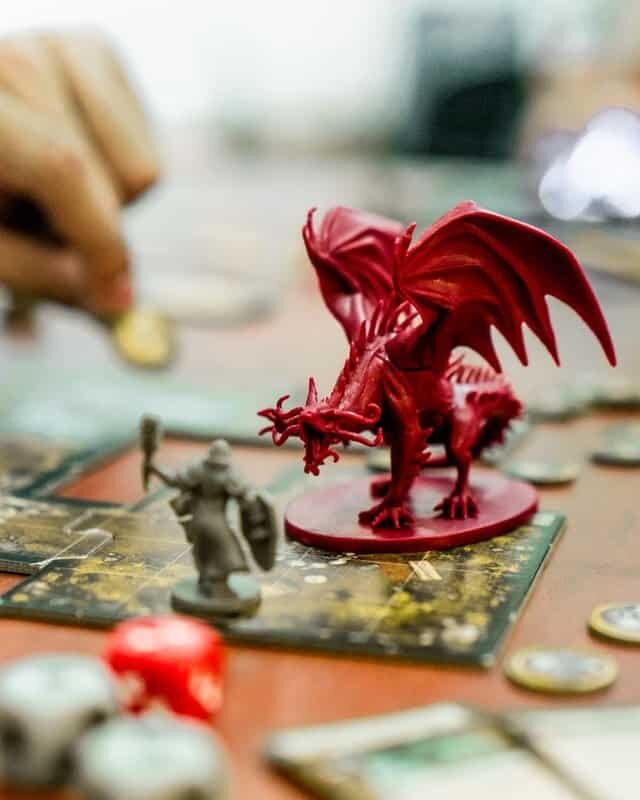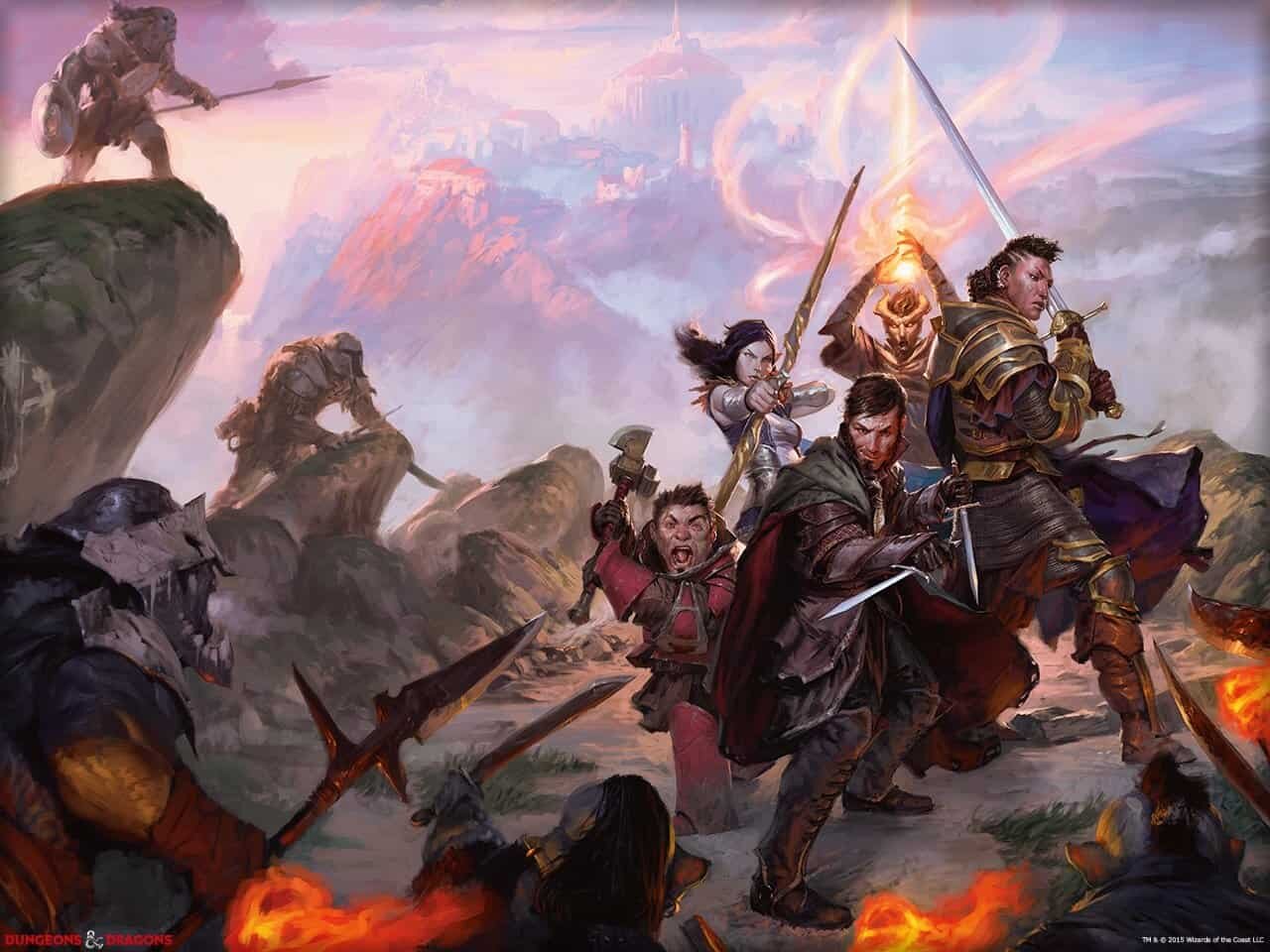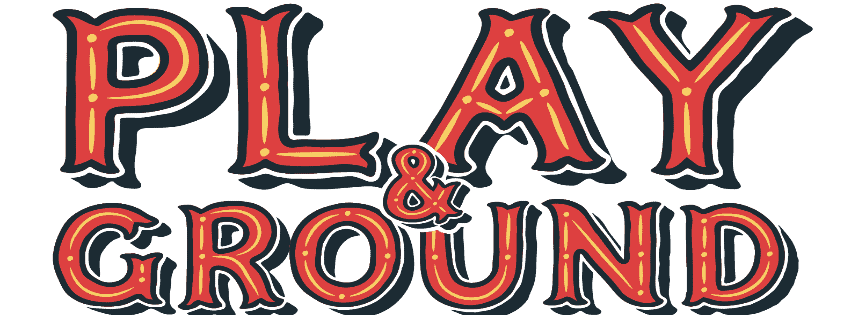Interested in becoming a Dungeon Master (DM)? This guide will teach you how to DM like a pro! From DMing tools to effective strategies and storytelling, this DM guide will show you everything you need to know about ruling your Dungeons & Dragons game.
So. You want to DM. A role meant for only the most devoted, the most charismatic, the most mysterious folk to wander the realms of tabletop roleplaying games.
Without the DM, there is no game, no world, and certainly no heroes, monsters, or villains.
By your speech, space-stations composed of spiralling, glistening alloy flicker and ignite their engines to a roaring crescendo, while entire cities construct themselves in all their sordid, magnificent complexity: ecologies and economies rise, thrive, collapse, and restart — all molded by the words you choose to share, or even not to share, with those that have joined you in this adventure.
Or, well... you could just describe a few dudes bopping goblins over the head with warhammers! My name is Brendan, and I’ve been a Dungeon Master (DM) for most of my life. Welcome to the most fun job you’ll ever willingly choose to do.

There are hundreds upon thousands of newcomers to the realm of tabletop RPGs, most likely due to the rise of popularity of Dungeons and Dragons, most specifically, the game’s current incarnation of Fifth Edition (5e). Luckily, D&Ds’ Fifth Edition is exceedingly friendly to players and groups of all experience levels.
As these groups come to discover the joy of communal storytelling, character creation, and hero-making, there must always be someone who leads the story’s path: the Dungeon Master.
It’s my job in this article to guide you into this role, and to help you take the first steps to making your players FEAR YOUR EVERY WORD! Or, really, to help your friends and associates have a good game session together. So, without further adieu, let’s take a crack at it!

Join Our Discord Server to Find a DnD Group and Talk With Other DMs!
Join Our Discord Server to Find a DnD Group, Get Updates On New Guides, and Talk With Other DMs!
Things You’ll Need to Be a Dungeon Master
To Dungeon Master, you need a group and it’s best to start simply — schedule a time with you and a few friends (preferably three) to begin. I use the app, Doodle, as well as a messaging app like Discord to help find a date that works.
After assembling your group, it is best to understand the system you’re playing: in this case, you’re playing Dungeons and Dragons. That Dungeon Master’s Guide is a pretty hefty read, but thankfully, you don’t have to read the entire book to understand how to play the game. Same for the Player’s Handbook. No one expects you to memorize everything!
Familiarize yourself with the rules, but don’t make a grand effort to memorize every single detail: information overload is a thing and the best way to enjoy and learn a game is to play it.
How to DM 5e: Foil Starter Set
Three Foil Dungeons & Dragons core rulebooks—the Players Handbook, Dungeon Master’s Guide, and Monster Manual—plus a Dungeon Master’s screen, all collected in a stylish slipcase.
Virtual Tabletop or In-Person?
If you’re playing virtually, I recommend roll20, a free virtual tabletop program. Alternatively, you can use Fantasy Grounds on Steam if you’re looking for a more curated, guided experience.
If you’re playing in person, you’ll need a few things:
The Story
Thankfully for you, oh novice DM, there are dozens upon dozens of free modules (pre-made stories) that you can use to wow, bamboozle, and impress your players! I linked to some modules at the bottom of this article you can try, or you can craft your own!
It is my belief that a story, and the ability to have random chance and player input alter that story, is the main appeal for any tabletop RPG.
There’s a reason that almost every piece of material printed for tabletop RPGs is composed of intricate storylines, believable characters, unique and inspired lore, and suggestions for creating your own story ideas once you’ve played enough.
How to DM: 5 Tips for Awesome D&D Sessions
Now that I’ve introduced you to some of the things you’ll need, let’s get on to the Five Tips I’ve found to be the most useful in helping create a fun, intriguing, and exciting game — not just for the players, but just as importantly, for you! After all, the “G” in RPG stands for “Game”, and everyone should be having fun, not just the players! With that being said, here are my tips for a first time DM.
Communicate!
Tabletop RPGs, whether played in person or over the internet, are entirely created and thrive on a group’s ability to communicate: both in character and as friends and colleagues.
Talk to your players, both as a group and individually, about things that could help them get excited for the game. This could include their character’s origins, what their character can or can’t do, and even what kinds of things they’d want to see happen during the story.
Your goal is to help your player(s) feel both attended to and motivated to explore the story!
Communicating with your players during and leading up to a game can really help draw your players into the experience, as well as give you ammunition and inspiration to create content.
I’ve found that holding a session zero before starting up a campaign is a great way to both establish characters and to help your player’s characters feel like they’re part of a group and a living world. A session zero is essentially a “prologue” session where the group develops characters and bonds together! You may want to start your first game this way.
To start a session zero, simply explain the scenario, talk to your player’s about their character choices, and give them a small snippet of what they can expect once the campaign begins.
Maybe your group wants to play as a group of dastardly sneak-thieves out to rob the whole world blind, or they want to be a cadre of knight-errants, each seeking out their own quest in the grand world of adventure... or maybe they’re just your garden-variety adventurers, out to make a quick buck, buy some luxury, and live a life of derring-do.
Knowing what your players want, expect, and might be hesitant to discuss is a great way to not only mold your story to their expectations, but also to throw a few curveballs down the road!
Communication in the game is just as important as communication outside of the game: keep an eye on your players and always take opportunities to use character dialogue and conversation to involve the entire table.
Alternatively, you can focus on a player who might feel ignored or out of the loop. Sometimes,putting a pause on the game to ensure that the group is more-or-less on the same page is a great bit of advice: everyone at the table should feel like they have a voice and a way to impact the events of the session!
While it's impossible to attend to everyone equally during every session, make sure you strive to keep the group on a forward-moving pace. If they’re stuck on a puzzle, ask for some group rolls to sprinkle some hints into their brains, and if a combat is looking grim, maybe describe some distant trumpets echoing in the distance, a clear signal to retreat.
On the other hand, if your party’s fighter is about to take their turn, and you KNOW that zombie-dragon has only 5 hit points left, drum that up! Describe the beast’s tattered skin sloughing off maggot-chewed bones, its grand size betrayed by hesitant or outright fearful body language.
In essence — Read the Room.
A great film once said: ABC! Always Be Closing! In my experience, you can change that last bit to Communicating! Always! Be! Communicating!
Involve Your Player’s Decisions
“Yes, and” Instead of “No”
If your players insult the local bounty hunter’s guild, don’t handwave that away: letting their choices have consequences, whether beneficial or negative (or both), is almost always better than shutting down the choice altogether!
A helpful phrase I’ve often encountered is “Yes, and….”. This phrase essentially tells a DM to be permissive, but realistic.
As mentioned earlier: if your players enter the Heart-Pierce Swamp, despite repeated warnings of its implicit and explicit danger, don’t be afraid to throw some dangerous encounters their way. Then, when the danger is communicated, help them escape! Keep the adventure going — “Yes, and” permits action, while “No” shuts down action.

If you tell someone “No” enough times, they will feel disempowered. Empower your players!
Just as it is important to reward your players for making a decision without your prompting, it is equally as important to help that decision feel important.
Let’s say your players come across an NPC who needs their aid, perhaps to slay a beast, recover some stolen treasure, or to drive a few ghosts out of a house, and they choose to assist the NPC. Have that character thank them and explain the situation, as well as comment on this group’s clear honor, bravery and guile.
If the party is dragging their feet or seems confused about the mission, don’t be afraid to explain and embellish the situation: maybe the reward the NPC alluded to is revealed to be a lost tome that the party’s wizard has been searching for, or an invitation to a merchant’s banquet where the rogue’s nemesis just so happens to attend.
Build up future adventures in the guise of their current task!
Join Our Discord Server to Find a DnD Group and Talk With Other DMs!
Join Our Discord Server to Find a DnD Group, Get Updates On New Guides, and Talk With Other DMs!
Plan in Broad Strokes, Fill in Details Later
Sometimes, you’ll have a plan for game night. You’ve crafted an adventure of unparalleled magnificence, filled with dangerous monsters, charming characters, unexpected twists, and heart-breaking betrayals. Rivalled only by humanity’s greatest stories, your adventure is something your players will talk of for the rest of their lives...
If only they didn’t choose to do something entirely different.
Alas, such is the fate of a good DM. My advice? Plan in broad strokes, rather than in hyper-detail.
Sometimes, the party won’t talk to the shady merchant who needs their help “retrieving” an artifact from a local manor. They’d rather go explore the forest only a few miles to the west. Who’s to say the encounter in the haunted manor is now, suddenly, a haunted forest?
When planning a session’s content, especially for long-form campaigns, make a list of possible adventures and focus on the one the player’s choose. Instead of wasting time on that one “perfect” adventure, plan for a few fun ones and build the one they choose into a great adventure.
Effective Strategies
With these resources, you, as a DM, can generally respond to most any questions tossed your way by the party. And if not, don’t be afraid to ask for a break!
Nobody can plan for every situation, and sometimes you’ll genuinely be surprised or taken aback by some decisions. If this occurs, maybe ask for an early stop to the session or a few minutes to prep some content in response to this unexpected occurrence.

“More like Guidelines than Actual Rules”
One of these days, I won’t quote pirate captains for my advice columns. But not today.
In every rulebook, you’ll often encounter what is known as “The Golden Rule”: At the end of the day, the rules in the book are more like suggestions than laws.
At the end of the day, the rules in the book are more like suggestions than laws.
The Golden Rule is the One Rule to Rule Them All: feel free to change, ignore, or rework anything laid in the rules to better fit your group.
If a rule is proving to be so obscure that nobody at the table can figure it out, like calculating a character’s weight limit while exhausted in the middle of the ocean, just create your own answer and move on.
Generally, people prioritize pacing, progression, and interesting developments over mastery of a subset of rules occurring in a game.
Sometimes, your player characters just want to jump over a crack in the ground without having to do intense math calculations to determine just how hard or easy that jump is. Sometimes, you can’t remember if a creature is weak to fire, but if it makes sense to you, then have that thing be weak to an inferno or two! And sometimes, a character is entirely, utterly, and irrevocably dead as a doornail...on paper.
Maybe, by a stroke of luck or fate, that character survived despite having three death fails and being in the negatives for hit points — Guidelines. Not rules. You get to make things your way!
That's not to say the rulebook should be ignored entirely: we don’t want to be throwing any babies out with bathwater, especially in these modern times when babies are generally agreed to be more valuable than bathwater.
Usually, the rules are appropriate for the situation and make sense to utilize. The Golden Rule is made to help keep a game going, rather than grinding to a halt every time someone needs to look up the answer to an obscure ruling.
Nobody can account for everything, not even game-makers.
All of these tips are leading up to this last one, so I hope you’ve been paying attention. There’s no exam, but these tips can help you become a fantastic DM, so listen up!
A Game is Meant to be Fun, Not Stressful
All of my tips so far have been focused on making your game session as fun as possible: player involvement, communication, knowing when to improvise versus when to plan, and understanding when to focus on pacing or rule accuracy.
These things are all a juggling act the DM handles in pursuit of the elusive quality we refer to as “Fun”. Like any game, a tabletop RPG is a gateway for a group to build bonds, experience new things together, and to craft a story together.
All of these things are fun — spending time with your friends, creating an exciting event, and finding your creative voice are all healthy ways to have fun. If you find that a game session has become stressful, negative, or even upsetting, talk it out with your group.
Take a break. Realize that Dungeons and Dragons is a unique experience, but it is also just a game. A Dungeon Master, despite what the memes say, is just a person. Like any person, you’ll make mistakes. And that’s okay: mistakes happen. Learn from them. Embrace them.

Failure and success, together, make a game — any game — fun. The advantage of this, game, though, is you can change, adapt, and react to anything that occurs. It’s your game: make it the best game it can be!
Author's Note
If you’ve enjoyed this article, feel free to share it with your friends! Also check out Beginner’s Guide to D&D World Building to help design a fun an interesting first session!
As a DM of several years, I’ve seen a lot of joy created in this game: I’ve spent days with friends, creating memories, forging bonds, and finding a voice in myself that other games could never rival. If this article helps you find that voice, forge a bond, or make a memory, then I think it has been a success.
Thank you for reading, and if you have any questions, comments, or concerns about your first time as a DM, please feel free to leave a comment below! I’ll read and respond to every one!
Join Our Discord Server to Find a DnD Group and Talk With Other DMs!
Join Our Discord Server to Find a DnD Group, Get Updates On New Guides, and Talk With Other DMs!


This is very insightful! And now I wanna go out and start a campaign
Keep an eye out for more articles, and I’m glad you found the article insightful!!